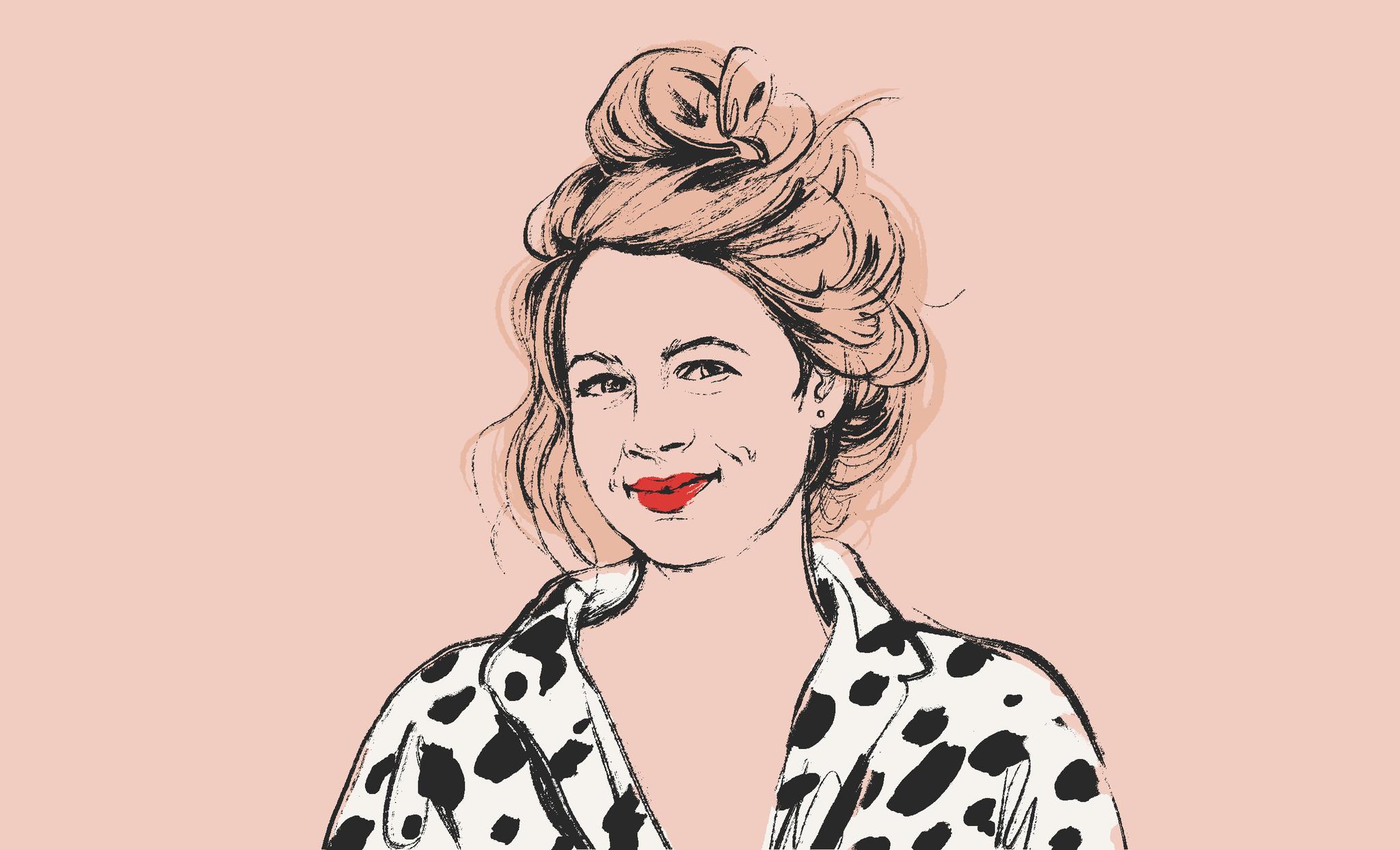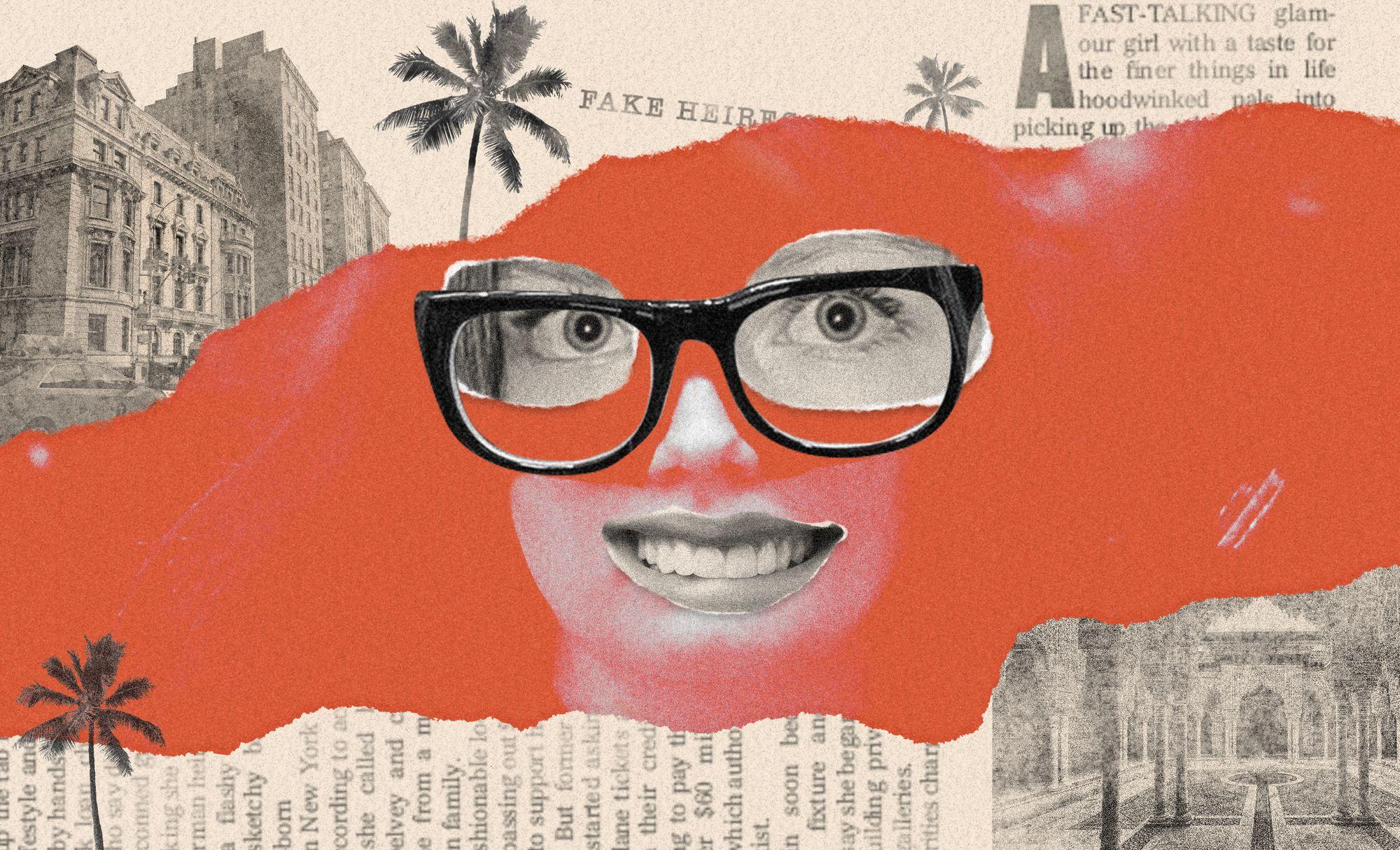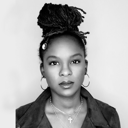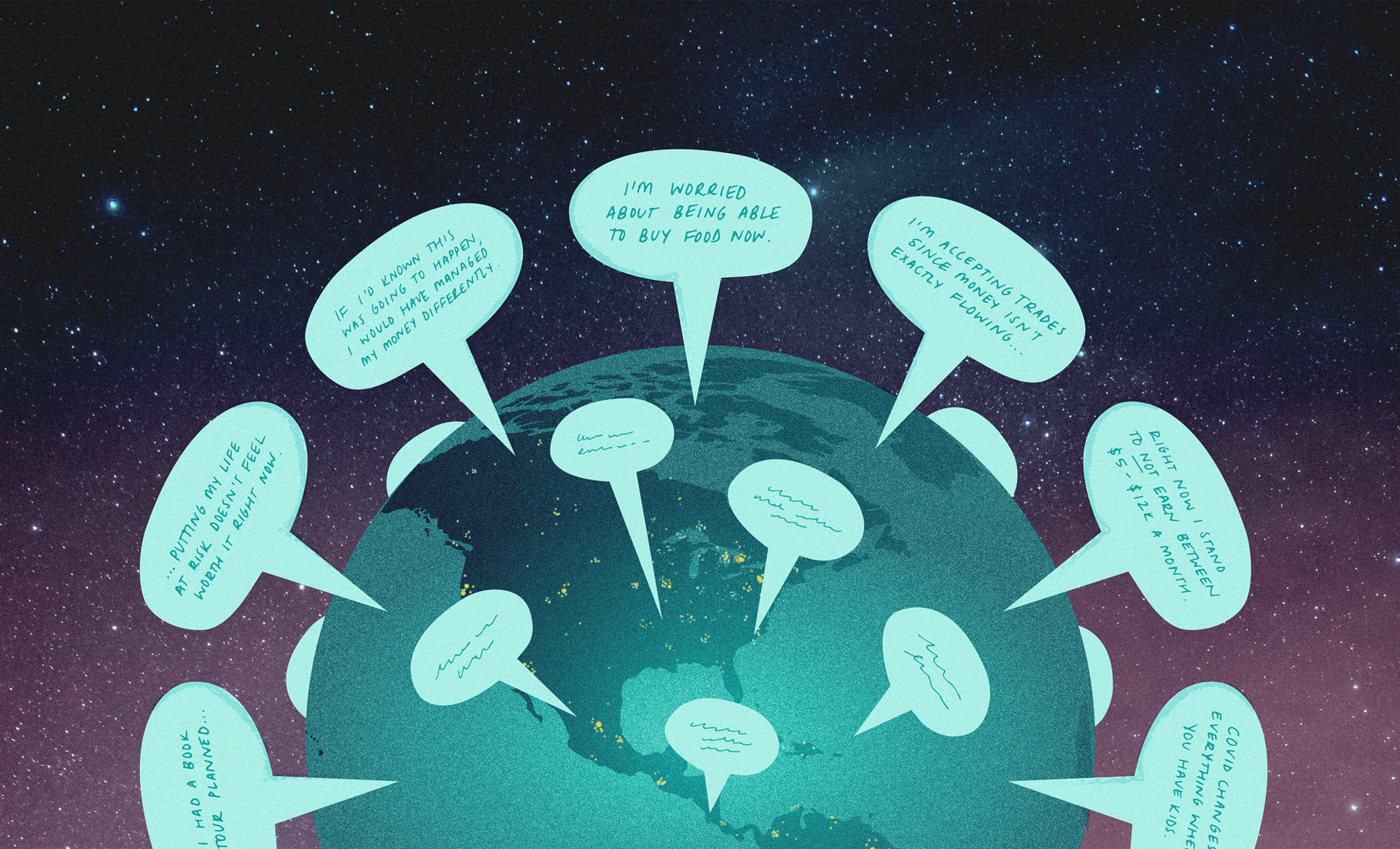Money Diaries
Friends with Money: Taylor Rooks
The woman who emerged from last year’s NBA bubble season as one of sports media’s biggest star talks about navigating business as a woman, being transparent about how much she makes, and the rest of her money story.
Wealthsimple makes powerful financial tools to help you grow and manage your money. Learn more
Tori Sampson: I’m very excited for this. You were at the top of my list for this series.
Taylor Rooks: Oh wow, that’s so kind.
I discovered you on Twitter. I’m a huge sports fan, so I stay on WNBA Twitter, on NFL Twitter. And I saw your interview with Tyler Herro on a boat?
Oh, yes.
It felt like two homies hanging out. And so, I was like, "Dang, she has this vibe going on. It doesn’t really feel like an interview."
Thank you.
As a young, Black woman, how did you find that comfort level while interviewing these very powerful men?
Honestly, and I say this all the time, I think that being a young, Black woman is one of the reasons why I’m more relatable to them. They don’t come into the interview and tense up and feel like someone is trying to get them in trouble to get a juicy soundbite. I’m not trying to twist their words. I’m not trying to do anything except speak with them and understand them. And so people are more inclined to do the interviews.
Let’s talk bubble basketball. When did you know you were going?
I heard some whispers like, Okay, if this bubble happens, you’re going. So, I was preparing myself. I’m like, “This is a once-in-a-lifetime opportunity. I’m going to live in Disney World for two months, and I’m going to get to cover the best basketball players in the world very personally and consistently.” And it was far and away my favourite thing I’ve ever done as a journalist: you wake up, you go to practice, you go to a game, you have a press conference. It really was a basketball fan’s dream. Like we’re all at summer camp together.
Is it fair to say that with everything that happened in the bubble, the exposure, changed your life as a journalist?
There was somewhat of a shift for sure. I feel like I did really strong work down there. And there were so few of us in there and people wanted to know everything that was happening and what it was like. So, I think it was a seminal moment for me. It also led for me to write that piece for GQ, which was really important for my career — that was one of their most viewed stories.
Did the whole thing affect your life financially at all after bubble basketball season?
It depends in what way. For my job, no, because going to the bubble, that’s a part of the job. Covering that was part of the work. But I do a lot of marketing-type deals on social media. So I would say I got more offers for that. And so that definitely helps me financially. It just put me in front of more eyes, so I get a lot of offers for branding things.
So I want people to know how you got to be such a force in the sports journalism world. How did it all begin?
Yeah. Oh my goodness. Well, I’ve always known I wanted to do this, genuinely always have. I [used to] set up my parents’ camcorder and just record myself talking to the camera, delivering the news and talking about what happened that day. It was a mess, girl.
Oh, I love it.
I ended up going to school and majoring in broadcast journalism at the University of Illinois, and when I was there, I started this blog. And I was able to get big interviews. I went to NBA All-Star weekend and interviewed a bunch of players there.
You flew yourself there? You just were like, I’m going to NBA All-Star weekend. You paid for the whole thing?
Even worse. Me and a friend of mine — he wanted to do more sports management — emailed 20 million times trying to convince them to give us a credential. They, for whatever reason, said yes. They were like, “If that will shut you up, we’ll give it to you.” So, we drove from Champaign, Illinois, to Orlando, Florida.
That’s what’s up though. I love the dedication. Who did you interview?
I mean, I asked questions to KD, LeBron, Kobe. That was the time I met Kobe, so I’m so happy I ended up going.
Fox Sports saw my work and asked me if I would work with them, so I was essentially covering Illinois football and basketball as a professional for the rest of my college career. I also started doing work with the Big Ten Network while I was in school, and when I graduated, the network asked me to come aboard.
When you got the call to start working as a student, how much did Fox Sports pay you?
I would say I got maybe $1,000 a month.
That’s pretty good for a college student.
Yeah. I was in school, so my parents were still helping me. They were paying my rent and stuff, so that money was just for me. It might’ve been $1,500 a month. When I graduated I started working at the Big Ten Network, and for that I was paid $500 a day for five days a week. So, I was getting pretty good money my first job out of school. I did that for two years then I started working at SN, a regional sports networks here in New York. I did that for two years. And now I’m at Bleacher Report sports. It was a big jump for me in terms of the voice that I had in all my jobs.
At BR, your voice really sets the tone for your show. How do you get people to want to come on?
I’m lucky to have come up with a lot of these guys. For example, when I was telling you how I drove to All-Star weekend that year when I was in college, that was the first time I met Kevin Durant, for instance. So I have been friends with him since I was 19, and he has supported and done my show at every stop I’ve been at. Or you think about guys that I was covering early, whether it was Victor Oladipo, or when Jayson Tatum was 15 years old and I was at the University of Illinois and I was covering his recruiting. It’s just we have almost gone through the journey of sports all together, right?
When you see these insiders like Adam Schefter, who always have all this information, it’s because they’ve established relationships with people. So, I think for a really long time, men have mastered that and men have had the advantage of being able to be friends with these people. But now, I hope what people are understanding is this is what journalism actually is.
The bigger issue that I hope and wish that people would focus on is how this culture was created in sports — why women feel like only one woman can do X, Y, or Z. Men never feel like only one man can do something. So what can we do to shift this?
I watched your interview on the “All the Smoke” podcast. You referred to yourself as a Black girl who looks Black. Can you talk a little bit about the importance of that?
Absolutely. The faces of Blackness in television or media tend to be lighter skin Black women, with tiny noses and specific features. Which is great. That’s Blackness. I’m not taking away from that. But I think when you see it all the time in your face and you don’t look like that, you start to feel like that is the acceptable Black if you want to be seen. So it was very important for me to show myself. I’m brown skin, I have a big nose, I have these big cheekbones. I never want someone to feel like they can’t do what they want to do because they don’t look a certain way.
There’s this author, her name is Tressie McMillan Cottom and in this book she has called “THICK,” she’s like, “I never want to be unattainable to my own people.” And I think about that a lot just with every decision I make. I even went through — I remember this phase where I was like, “Oh my God!” I felt maybe my nose is too big. Should I fix my nose? I feel like everybody at some point goes through that moment and I did and I’m so happy I decided not to ever do anything like that.
Who do you think is the best player in the NBA right now? Let’s take LeBron out.
I don’t think it’s so cut and dry that it’s even LeBron. I think it’s LeBron or KD. For whatever reason, though, Kevin doesn’t really get mentioned in that conversation as much as he probably should. But if you look at the past couple seasons, obviously, when he’s healthy, he’s right up there. And obviously, right now, you also have to think about Giannis, too.
What about the WNBA?
I am a very big, loyal Sue Bird fan. I also love Diana Taurasi. Love Breanna Stewart. I interviewed her earlier this year and just thought she was the best. I love following A’ja Wilson on social media because she’s hilarious. I love that people are really getting familiar with WNBA players and seeing that they’re so fun.
Back to some money stuff: it’s safe to say you’re around millionaires pretty much every day.
Yeah. Millionaires every day.
What’s the most bizarre thing you’ve observed in this NBA world of new money?
When NBA players are playing cards on the plane, they will put up so much money and lose so much money and be fine with it because they can.
Who’s cheap?
Everyone says LeBron is the cheapest person in the NBA, which is hilarious. I interviewed Chris Paul once and he said, “Whenever we go anywhere, LeBron’s first question is, what is the Wi-Fi?” Because he doesn’t want to use his data.
When did you go from, “they have money” to “oh shit, I have money now, too”?
I was actually just thinking about this the other day. So, I grew up in Gwinnett County, Georgia, which is a pretty well-off suburb. The Falcons players lived in the neighbourhood right next to my high school. It was country clubs and big houses. So I was always around people that had a lot of money.
Recommended for you

She’s a Toronto Legend, Model, and Style Icon. And She Was Nearly Homeless
Money Diaries

Cult Animator Carson Mell Decided Making Stuff Was More Important than College
Money Diaries

Alison Roman Is the Patron Saint of Home Cooking and Everyone’s at Home
Money Diaries

How I was Conned by the “Fake German Heiress”
Money Diaries
Part of the reason I do this interview series is I think transparency is so important, especially as women in these industries. It’s like if we don’t talk about money, if we don’t say like, this is how much money I got off this contract, how much did you get? We won’t know what to ask for.
My friend and I were doing something with a brand. She told me what they were paying her and I was like, “Well, this is what they’re paying me.” It was significantly more than what they were paying her, and I get it was because of followings and all that type of stuff, but she needed to know my number so that she could ask for more, and she got more because she knew that they had more. And I don’t ever want a woman, and definitely not a Black woman, to be slighted by this brand, because they felt like they could get them for cheap. So, yeah, it’s important to discuss money with your peers.
I know that whether you like it or not, these athletes, they see you and perhaps approach you on a more personal level. How do you set those boundaries for yourself and does it ever feel uncomfortable?
I think there’s this understanding that everyone is there just doing a job. There’s an overall misconception that every athlete is just always hitting on people, because that’s really not what it’s like. We don’t step into these interviews and everyone’s trying to get after us. That’s just not how it goes. All the guys in the league and all the women in the league and coaches and agents and all that stuff are all incredibly respectful and understand the boundaries of the job.
Can we talk about what happened to Maria Taylor over at ESPN? How’d that make you feel?
My first response was talking to Maria. She’s a good friend of mine, and you want to check in on your friends. It can feel like a lot when you are the topic of something on social media. So, you just want to make sure that your friend is okay. And I think we all know there was no reason for diversity to ever be brought up in that case. Maria is the most talented, most versatile — not woman in sports media but person in sports media. Her talent cannot be overestimated.
The bigger issue that I hope and wish that people would focus on is how this culture was created in sports — why women feel like only one woman can do X, Y, or Z. Men never feel like only one man can do something. So what can we do to shift this?
And I get it because Rachel [Nichols] was the face of this story. She was the name that everybody knew, but Rachel doesn’t make decisions at the company. Decisions at the company come from other places, other people, other levels, and that’s any company. And a lot of the time the people that are in these top positions are men. So men are creating this culture. And I don’t think any progress will be made until we address that and make it better from there.
A woman recently told me about a conversation she had with a friend — a white woman — who had just reached a level of success that she had been working toward her whole life. “I’m really nervous right now,” the woman said, "because, as a white woman, I just got to this place that white men have been, and now it feels like it’s going to be taken away from us, because we have to step out the way and allow Black women this thing, and it’s like but when is it our turn?" She asked me what I felt about that and I sat with it for a second. But there’s this moment when you realize like, oh, I’m Black before I’m a woman. Or if I get anything, it’s not going to be credited to my talent; people are automatically going to think it’s because of affirmative action. How much of that plays into your world?
I have said this time and time again that Black people and Black women that are here are so good because you have to be so good. You have to have been the best of the best of the best to even get a sniff, right? And I’m sure there are times where there’s a bit of imposter syndrome, where you’re like, “Wait, should I be here?” But you absolutely should.
But with Black women, what do you do when something is both sexist and racist? And that is not the thing that women who are not of colour deal with. Yes, there are so many problems that face white women in sports and in every job, and those problems are super important and need to be addressed. Black women are doubling down on those problems. It’s like this constant uphill battle that is taking place. So, what I deal with in sports media, I can literally only talk about it to other Black women, because they’re the only ones who I know, for sure, can relate to it on every single level.
So, this is a simple question, but I find it hard when people ask me. Do you want to be rich?
Yes.
That wasn’t hard for you at all.
How would you not want to be rich? I’m not saying that’s the goal, right? I mean, it’s not like I’m like, “Oh, I’m doing this to be rich.” But it’s like, yeah, sure.
We live in a capitalistic world, but do you consider yourself a capitalist?
I don’t know if I have the answer for that. The thing that I know, nothing else, is sports and media. I don’t know the ins and outs of capitalism or socialism. And I think we should normalize people saying they don’t know, and I do not know where I fall.
Do you have a financial goal for yourself? A number?
I don’t know if I have a number. I know last year I was super close to making a million and so…
Congratulations.
Thank you. Thank you. From just what I made from that whole year, from work, from marketing stuff, all that stuff — I was really close to making a million. So, it’d be cool this year for my yearly earnings to be a million, but that to me is — this is going to sound terrible, but I know you’ll know what I’m trying to say: a million is not that much money, you know? So, I would love to be a multimillionaire when this is all said and done. But yeah, I don’t know if I have a numbers goal as much as I want to be completely comfortable. This is a conversation I was having the other day — it’s just crazy the amount of problems having money solves.
It is absolutely astonishing how it can take a lot of stress off your life when you’re like, “Okay, I can literally afford to make some mistakes.”
So, it’s not like, I want to hit this number, or that number or whatever; I just want to be okay with whatever problems present themselves.
Have you ever been on a private jet before?
I will never get on a plane that is not a big, commercial plane. It’s terrifying to me. I’ll meet y’all there. I’ll just take a Delta. Yeah, no way.
What is on your rich-person experience bucket list that you want to hit?
I want to live in a penthouse of a building in New York. Floor to ceiling windows. I just want to have the best New York apartment.
What’s the most expensive thing that you’ve ever purchased for yourself?
I’m really not a splurger. Maybe vacations.
Well, how much did you drop on a vacation?
$20,000.
Okay.
Yeah. I don’t just buy expensive stuff. I’m not really into anything very expensive, to be honest. I spend a lot of my money on food. I will go to a great restaurant, and I don’t care how much we’re paying. That I will do.
I just thought of this question while we were speaking. You know Paige Bueckers at UConn?
Yes.
Did you watch her at the ESPYs?
Yes, and her speech was great — how she talked about her platform as a white woman and that Black women needed that platform. It was great.
And then she talked about how journalists have the power to big up whoever it is. I felt like she was calling people out saying, “You need to redirect your attention a little bit here.”
I agree. I think that is the job of journalists to not be lazy. It’s very important not just to give attention to the person who’s already getting attention, because it’s the easy thing to do. Take the extra step to find people that are just as talented and just as interesting that no one is talking about. Challenge yourself and really open up your eyes and, more importantly, just do your job, which is to find good stories. Black people make sports tick in so many ways. So, yeah, I love that she did this call to action to media and journalists and said, we can do better than this, and it’s on you all to help us get there.
Well thank you. I was nervous because I’ve been interviewing people but I was like now I’m interviewing a journalist.
You do a great job. You asked me questions that no one has ever asked me before, and to me that’s always good.
That’s the goal. Thank you so much.
Tori Sampson is an award-winning playwright (her recent play “If Pretty Hurts, Ugly Must Be a Muhfucka” was a New York Times critic’s pick) and currently writes for “Hunters” on Amazon Prime. She is a proud Bostonian and lover of all things Julia Roberts and AJ1 sneakers.





